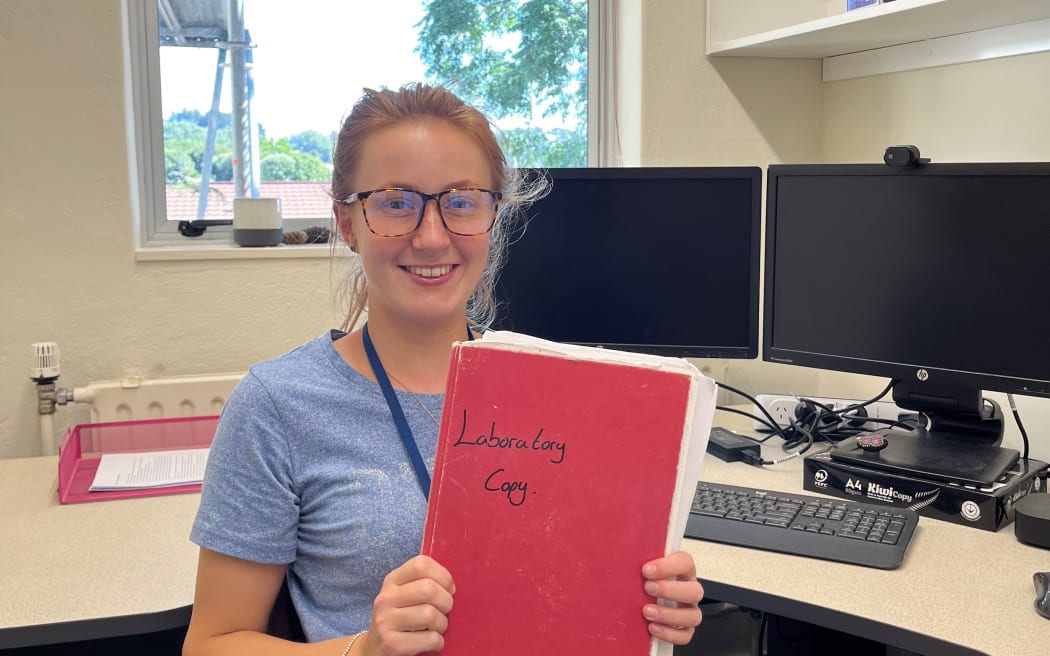
Emily Roskam reunited with her notes. Photo: Supplied / Emily Roskam
The power of social media has helped an Irish agriculture PhD student reunite with vital lab notes stolen while she was travelling around New Zealand.
Emily Roskam has been doing some of her PhD research in Palmerston North, exploring the effectiveness of novel feed additives in reducing an animal's methane emissions.
After arriving here from Ireland, the Walsh scholar travelled around New Zealand in January - but when in Wellington, her car was broken into and a bag was stolen from it.
With it, she lost her passport, laptop, hard drive and most importantly, she said, was her data-heavy lab notes.
Weeks later, a fortuitous post on social media uncovered her missing bag in Lower Hutt.
"Someone had posted a photo on Wellington Lost and Found, a picture of my bag," Roskam said.
"I contacted the people on Facebook straight away and it was my bag, so they sent me a picture and it had everything like even phone chargers, adapters and all my paperwork, everything was in it. So I was so happy."
But the laptop, hard drive and passport were all gone - which she said were "all replaceable."
"The lab copy was the most important thing," she said.
"I can't describe how relieved I was."
Roskam's research analysed DNA samples of ruminant animals like sheep and cattle to see if feed additives were successful in reducing methane emissions from the animal.
"I'm looking at that DNA to see what the additive did in the animal stomach to actually reduce the methane."
Roskam said she had all the data with corresponding numbers to the animals in her copy book.
"So without my actual lab copy, we didn't know what anything was like. So all that work would have gone to waste."
She said the research was key in addressing the global challenge of reducing agricultural emissions.
"Ireland and New Zealand, they're kind of in the same boat with agricultural emissions and methane. So that's why I came here, because I suppose we both have a pasture-based system where we're looking to find a solution to reduce methane outdoors."
She's back in Palmerston North, and back in the lab.
"Everything's back up and running. And I know it was a bad thing to happen in Wellington, but everything that's happened since then, like everyone was so helpful and so nice. It had a kind of silver lining, really.
"I learned a valuable lesson anyways."
Emily Roskam will leave New Zealand in April and hoped to finish her PhD later this year.

